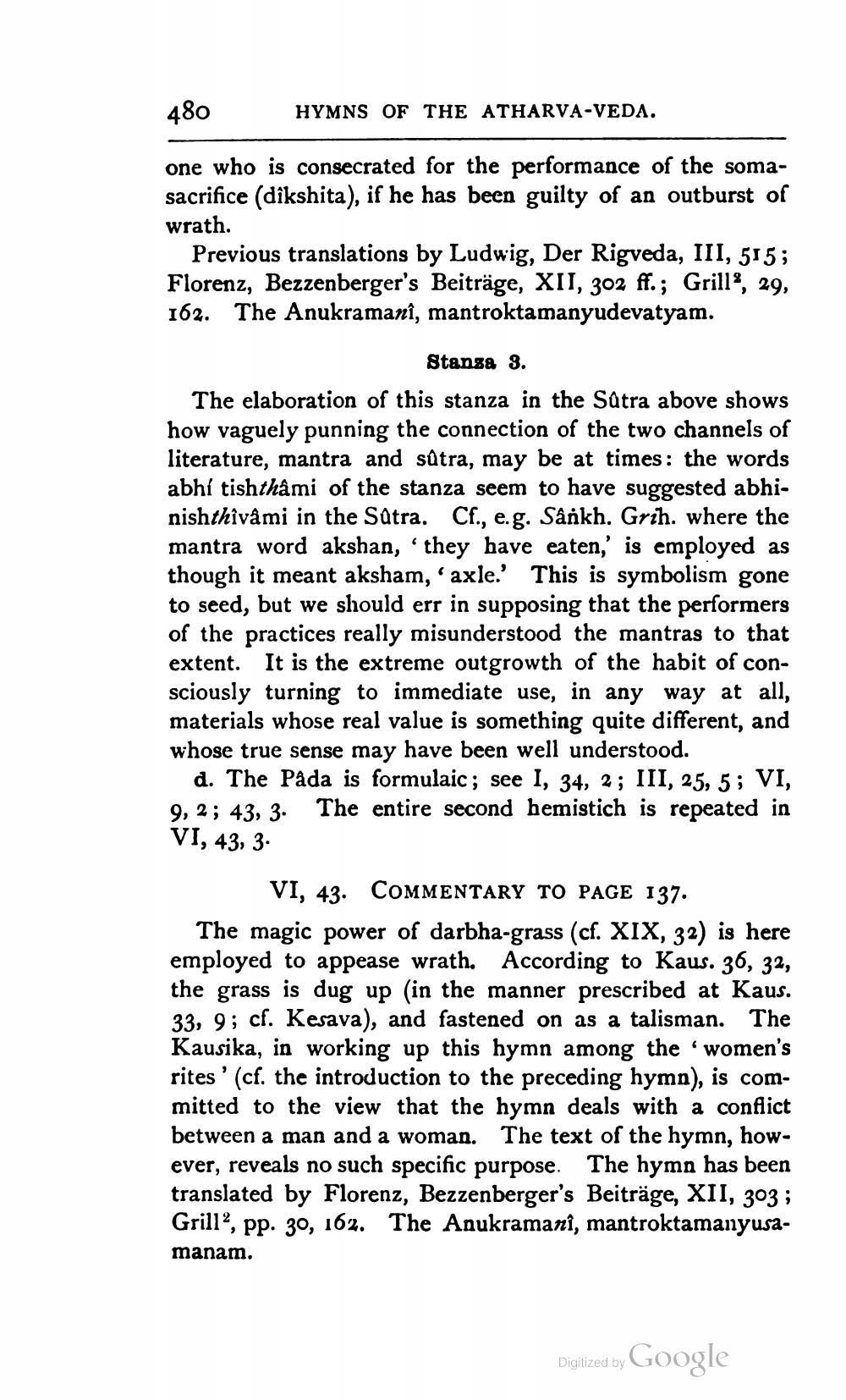________________
480
HYMNS OF THE ATHARVA-VEDA.
one who is consecrated for the performance of the somasacrifice (dikshita), if he has been guilty of an outburst of wrath.
Previous translations by Ludwig, Der Rigveda, III, 515; Florenz, Bezzenberger's Beiträge, XII, 302 ff.; Grill, 29, 162. The Anukramanî, mantroktamanyudevatyam.
Stanza 3. The elaboration of this stanza in the Satra above shows how vaguely punning the connection of the two channels of literature, mantra and sútra, may be at times: the words abhi tishthâmi of the stanza seem to have suggested abhinishthivami in the Satra. Cf., e.g. Sankh. Grih. where the mantra word akshan, 'they have eaten,' is employed as though it meant aksham,' axle.' This is symbolism gone to seed, but we should err in supposing that the performers of the practices really misunderstood the mantras to that extent. It is the extreme outgrowth of the habit of consciously turning to immediate use, in any way at all, materials whose real value is something quite different, and whose true sense may have been well understood.
d. The Pâda is formulaic; see I, 34, 2; III, 25, 5; VI, 9, 2; 43, 3. The entire second hemistich is repeated in VI, 43, 3.
VI, 43. COMMENTARY TO PAGE 137. The magic power of darbha-grass (cf. XIX, 32) is here employed to appease wrath. According to Kaus. 36, 32, the grass is dug up in the manner prescribed at Kaus. 33, 9; cf. Kesava), and fastened on as a talisman. The Kausika, in working up this hymn among the women's rites ' (cf. the introduction to the preceding hymn), is committed to the view that the hymn deals with a conflict between a man and a woman. The text of the hymn, however, reveals no such specific purpose. The hymn has been translated by Florenz, Bezzenberger's Beiträge, XII, 303 ; Grill?, pp. 30, 162. The Anukramani, mantroktamanyusamanam.
Digitized by Google




